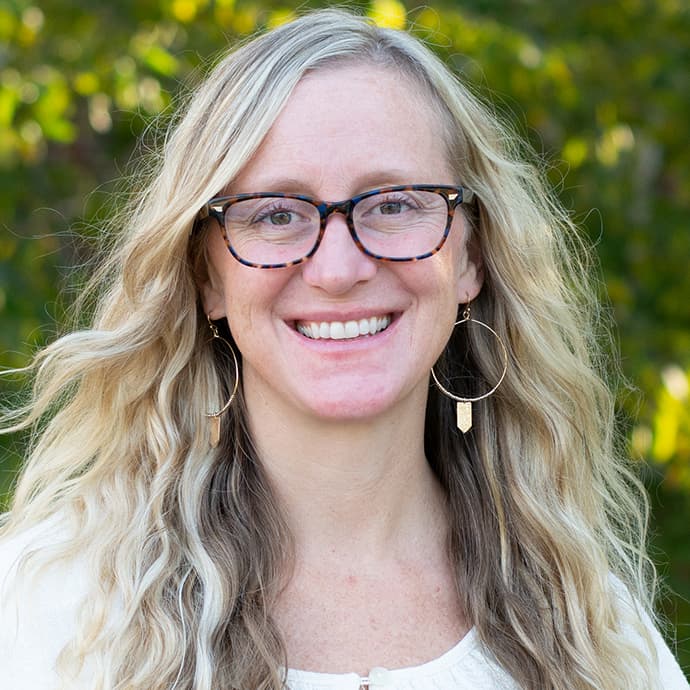
Boosted by an Early Career Award from the Society for the Study of Human Development (SSHD), Sara Schmitt, PhD ’13, helps her students reach their potential as an associate professor at Purdue University.
“I am incredibly passionate about my line of work,” she says. “Perhaps the most rewarding part of my job is training the future generation of scholars in our field. I love working with my graduate students and postdocs and helping them reach their professional goals.”

Will you tell us about yourself, please?
I grew up in Wisconsin. Shortly after graduating from the University of Wisconsin – Madison with a bachelor’s degree in psychology, I moved to San Diego to be an AmeriCorps volunteer. During my AmeriCorps year, I volunteered full time at a family homeless shelter where I taught preschool, helped run a family literacy program, and tutored school-age children.
This experience impacted my career path in numerous ways. I became incredibly interested in the role of adversity on children’s outcomes. Because I was seeing drastic individual differences in children’s behavioral and academic development, I became interested in factors that may promote resiliency in children.
I observed many children in this context struggle with their self-regulation, which appeared to have a major impact on their ability to learn in the classroom. All of these interests eventually became the basis for my human development and family studies research program that began at Oregon State and continues at Purdue.
What inspired you to study HDFS? And why at Oregon State?
I decided to get my doctoral training in HDFS because of the applied focus of the field. I had always been interested in basic research on developmental processes, but I was becoming more and more interested in the type of scholarship that could not only inform the research community but also could have direct implications for classroom practices and children’s development.
I chose OSU because the HDFS program is productive and has a graduate curriculum that I felt would help me reach my professional goals.
I also chose OSU because I wanted to work with Megan McClelland, who is an exceptional scholar and has an overlapping interest in self-regulation and intervention. I believed she would be able to provide the training I needed to be a successful faculty member at a research university, and she did!
What is your current role, and what do you enjoy most about it?
I am currently an associate professor in HDFS at Purdue University. There is so much I enjoy about it! I enjoy having the freedom and flexibility to study exactly what I want.
Editor’s note: Since the publication of this article, Sara is now the Bricker/Squires Faculty Chair in Early Intervention at the University of Oregon.
My work is focused on strengthening young children’s self-regulation and school readiness through identifying contextual and individual predictors of the development of self-regulation during the early childhood period, designing and evaluating targeted interventions and policies to enhance self-regulation and school readiness primarily in children from socioeconomically disadvantaged populations, and providing training and implementation support for a comprehensive curriculum designed to support self-regulation and school readiness.
I am incredibly passionate about my research and love my time addressing critical research questions around these general topics. I also enjoy teaching at the undergraduate and graduate level.
I currently teach one course that is part of our Early Childhood Education and Exceptional Needs program on teaching social-emotional skills in young children. I love teaching this course because I get the opportunity to train preservice teachers on how to best support self-regulation and other social-emotional skills in the classroom.
Perhaps the most rewarding part of my job is training the future generation of scholars in our field. I love working with my graduate students and postdocs and helping them reach their professional goals.
Learn more about Oregon State’s human development and family studies doctoral program. Request information.